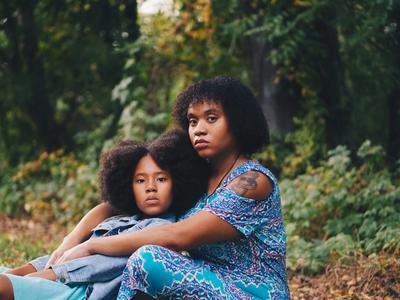black maternal health & why it matters
By Emily Marucci
Contributor
06.26.21
The hard truth: black women and their babies aren’t receiving the health care that they deserve and need.
The truth is: Black mothers face life-threatening experiences while pregnant and while giving birth. Many of them die in delivery rooms because of gross negligence by healthcare providers that they should be able to trust. The National Institute of Health says “national severe maternal morbidity rates have nearly doubled over the past decade, and have increased to 166% higher for black women than white women from 2012 to 2015.” To further explore, here’s some facts from Essence’s article “Black Maternal Health Matters”:
Black Women Are More Likely To Die During Childbirth
Statistics show that Black women are three to four times more likely to experience a pregnancy-related death than white women. What’s worse is the CDC claims three out of five of pregnancy-related deaths could have been prevented.
Underlying Health Conditions Make Pregnancy More Risky
According to the CDC, high blood pressure and cardiovascular disease are two of the leading causes of maternal death. African-Americans are at an increased risk for these conditions, which have a dangerous effect on pregnancy. Black women often develop preeclampsia (a dangerous rise in high blood pressure in pregnant women) and therefore have an approximately 1.7-fold higher risk of dying from cardiovascular disease later in life.
Black Women Are Mistreated By The Healthcare System
Data shows that Black women aren’t often believed when they say they’re in pain, and much of that is due to discrimination and bias in the health care industry. A report from the Institute of Medicine found that Black Americans receive less quality healthcare than whites for nearly every disease there is, and that includes prenatal care.
The Black Infant Mortality Rate Keeps Going Up
Not only are Black mothers at risk while giving birth…so are our children. Black infants in America are twice as likely to die before their first birthday as white infants. Information provided by the CDC says well educated, middle-class Black mothers are more likely to lose their babies than poor white mothers without a high school diploma.
Black Women Receive Less Help For Postpartum Depression
Postpartum depression is debilitating and affects roughly 10%–20% of women who give birth. Black moms, however, are less likely to get the help they need. A study by the National Institute Of Health found that 8% of white women received treatment for their postpartum depression compared to 4% of Black women.
WHAT THE U.S. MATERNAL HEALTH CRISIS LOOKS LIKE:
54 OTHER HIGH-RESOURCE COUNTRIES WHERE WOMEN ARE LESS LIKELY TO DIE FROM PREGNANCY OR CHILDBIRTH.
2-3x BLACK AND INDIGENOUS WOMEN ARE 2 TO 3 TIMES MORE LIKELY TO DIE FROM PREGNANCY AND CHILDBIRTH THAN WHITE WOMEN.
60% OF THOSE DEATHS ARE PREVENTABLE. ALL ARE TRAGIC.
ORGANIZATIONS & PEOPLE WHO ARE MAKING A DIFFERENCE (AND WHO WE SHOULD SUPPORT IN ANY WAY POSSIBLE):
Every Mother Counts was founded by Christy Turlington Burns in 2010, following the release of her documentary film, No Woman, No Cry. After experiencing her own childbirth complication, Christy learned that hundreds of thousands of women were dying every year because they do not have access to the maternity care that they need. She then dedicated her work to understanding the challenges of and opportunities for improving access to maternity care around the world.
Every Mother Counts was created to raise awareness and to educate the public about an issue that touches us all, but one that not enough people know about until it’s too late.
Every mother has a story. It’s our job at Every Mother Counts to make sure that these stories are documented and shared widely so that others will learn from them and one day, these tragedies will be stories of the past.
NBEC creates solutions that optimize Black maternal and infant health through training, policy advocacy, research, and community-centered collaboration.The NBEC is focused on overhauling the systems and structures that contribute to maternal deaths. “We’re not blaming moms or blaming women,” ob-gyn Joia Crear-Perry, M.D., founder and president of the NBEC, tells SELF. Instead, the NBEC is analyzing which large-scale issues are at the crux of black maternal mortality, then addressing them.
Sista Midwife Productions is a birth advocacy organization based in New Orleans, LA. They provide education, training and consultations for communities, birth workers and organizations that work with child bearing families.
Their mission is to improve pregnancy and birth experiences and to eliminate perinatal disparities by increasing the number of black birth workers, teaching families about their rights and options; and creating transparency and accountability within childbirth education and the medical obstetrical system. Using workshops, seminars and edutainment experiences to educate communities and to move them toward a paradigm shift to change the ways they think about conception, pregnancy, birth, and mothering.
Black Mamas Matter Alliance is a Black women-led cross-sectoral alliance. We center Black mamas to advocate, drive research, build power, and shift culture for Black maternal health, rights, and justice. Their goals include: change of policies (introduce and advance policy grounded in the human rights framework that addresses Black maternal health inequity and improves Black maternal health outcomes), cultivate research (leverage the talent and knowledge that exists in Black communities and cultivate innovative research methods to inform the policy agenda to improve Black maternal health), advance care for Black Mamas (explore, introduce, and enhance holistic and comprehensive approaches to Black mamas’ care) and shift culture (redirect and reframe the conversation on Black maternal health and amplify the voices of Black mamas).
Representing North Carolina's 12th congressional district, Congresswoman Adams helped launch the Black Maternal Health Caucus to improve black maternal health outcomes. Her work has helped raise awareness within Congress for Black maternal health concerns, and she also advocates for culturally-competent policies and reproductive justice for Black mothers.
Alongside Congresswoman Alma Adams, Underwood launched the Black Maternal Health Caucus in order to improve Black maternal health outcomes. Created in April 2019, the Caucus works to create solutions for the staggering racial disparities in maternal health.
Jackson is a reproductive justice advocate and activist who focuses on issues related to Black mental health. She also works as a consultant and educator for organizations including the Center for Excellence in Women’s Health at Harvard Medical School and the Ford Foundation. In 2018, the Black Mamas Matter Alliance highlighted her groundbreaking research in their advocacy work. She is also the recipient of the Spelman College Alumnae Achievement Award in Health and Science and the Delta Award for Health Activism due to her tireless work and research in the field of health equity.
The National Black Doulas Association (NBDA) connects Black parents with Black doulas across the nation, working to tackle the U.S. Black maternal mortality rate. The NBDA connects Black birthing families with Black doulas nationwide so that parents can easily find doulas who provide support, comfort and assistance from pregnancy through the postpartum period. The association also provides insightful training for folks wishing to become a doula.
As one of the few Black-owned birth centers in the country, Roots Community Birth Center is committed to addressing the unique needs of Black families. And their work is making a difference: Early data from the center suggests that Roots is actively improving birth outcomes compared to national averages, in addition to offering breastfeeding support and advocacy.
Resources: Essence, Every Mother Counts, AMA, Self, What to Expect



